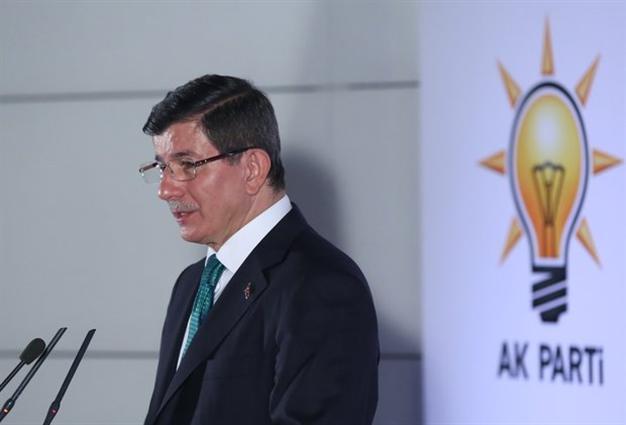Parties step up search for alliances before Turkey’s Nov 1 vote
ANKARA

AA photo
Contacts between major and minor political parties have intensified in recent days, amid preparations for Turkey’s upcoming snap Nov. 1 election.Prime Minister Ahmet Davutoğlu, the leader of the Justice and Development Party (AKP), has tasked former Labor and Social Security Minister Faruk Çelik for conducting negotiations for alliance with the Islamic-based Felicity (Saadet) Party (SP), daily Hürriyet reported.
There are also rumors that the Nationalist Movement Party (MHP), which currently holds 79 seats at parliament, intends to form a nationalist front with the Great Union Party (BBP).
The Anadolu Party has announced that it will not join the Nov. 1 elections because it would not be a “fair election,” while the ultra-nationalist Rights and Equality Party (HEPAR) has also stated that it does not plan to take part in the election.
According to Hürriyet, three weeks ago Davutoğlu had a meeting with the SP’s leading figures, Oğuzhan Asiltürk and Temel Karamollaoğlu, and afterwards commissioned Çelik to “negotiate” with the SP.
As the SP reportedly asked for a 20-seat quota, the AKP offered either six or seven seats to be allocated, an offer that was not accepted.
“As party with a great experience, in order for us to be able to make contribution in parliamentary work, a figure that is sufficient to forming a parliamentary group is a sine qua non for us,” Asiltürk told Hürriyet, in remarks published on Sept. 11.
Forming a group in Turkey’s parliament requires at least 20 seats.
“We are waiting for [the AKP’s] decision. If it is not accepted, we will enter the election on our own,” Asiltürk added.
The AKP is expected to convey its final decision concerning the SP’s appeal for 20-deputy quota at its party congress scheduled for Sept. 12.
The AKP, which failed to receive enough votes to form a single-party government in the June general election, has reportedly also been in touch with Fatih Erbakan of the SP, the son of the late party leader and iconic politician Necmettin Erbakan. In the event of an absence of an eventual agreement with the SP, it reportedly plans to nominate Erbakan and a few other leading figures from the SP on the AKP ticket.
On the nationalist front, BBP Deputy Chair Selahattin Şenliler, speaking in Tokat on Sept. 10, said his party did not plan an alliance with the SP “at the moment.”
The two parties had formed an alliance in the June 7 vote, which Şenliler said failed to yield the desired results.
According to Sözcü daily, BBP leader Mustafa Destici has been voicing optimism concerning closed-door bargaining with the MHP for an election alliance.
Recently, MHP Deputy Parliamentary Group Chair Oktay Vural publicly said forming an election alliance with the BBP was needed and it would strengthen their party.
As for the secular nationalist division that emerged from the split within the social-democratic Republican People’s Party (CHP), the Anadolu Party announced that it would not take part in the election.
“We are not in this game. The name of what will happen, or even what will not happen, on Nov. 1 is neither ‘early election’ nor ‘re-run,’” Anadolu Party head Emine Ülker Tarhan said earlier this week.
Tarhan had formed the Anadolu Party in November 2014, following her resignation from the CHP.
Referring to the ongoing conflict between Turkey’s security forces and the outlawed Kurdistan Workers’ Party (PKK), Tarhan said an election could not be held in such an atmosphere.
“The ballot boxes, which are being sold to us as transparent, are black boxes. Each will have the blood of martyrs and the graves they left behind on them. An election built on these cannot be our election,” she added.
Meanwhile, HEPAR leader Recep Bakırcı, speaking to reporters in Antalya earlier this week, also confirmed that they would not join the election.
















